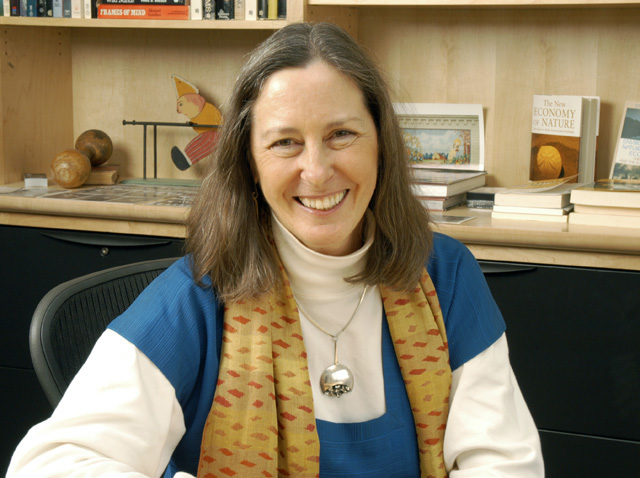
A new Green Lab for Applied Technology, a nascent Institute for Entrepreneurship Education, the founding of the Office for Economic and Community Development, the reconstitution of the School of Business, the development of the School of Education, the Department of Social Work’s alliance with the College, the construction of a new home for the Department of Kinesiology and Recreation Administration—these carefully constructed building blocks position Professional Studies to thrive far into the future.
Dean Higgins, who retires this semester, predicts the College will be larger come 2018, either with a rising number of independent schools or more colleges. The possibilities range, say, from adding a School of Health and Human Services to the current structure to a College of Education and Human Development or possibly a College of Business, Economics and Technology.
Much will depend, of course, on Humboldt State’s growth—the strategic plan projects 12,000 students by 2040.
“If our growth cannot support additional Colleges, I certainly think that the structure of independent schools of related departments under the rubric of the CPS would do us very well,” Dr. Higgins said in an interview.
The directions she has taken since becoming Dean in July, 2002 stem from the unified vision she helped the College to realize at the outset. CPS educates individuals to achieve a positive impact on human and economic conditions, consonant with a mushrooming global society. It enables students to develop and embrace ethical, sustainable practices within an entrepreneurial spirit. They can go on to be socially responsible leaders and practitioners, committed to personal and community wellness in the broadest sense.
This vision has become reality through such steps as modernizing the old Industrial Technology program into an Applied Technology curriculum suitable to 21st century needs. “Now our students learn how to manage technological change in a number of contexts, in particular in green design and construction,” Dr. Higgins points out. “They’re learning about the infusion of automated systems into medical, industrial and manufacturing practices, with an eye toward sustainability and accountability. We encourage entrepreneurial thinking, in concert with education in design and the knowledge of how things really work.”
She recalled that six years ago, Industrial Technology had a dwindling number of majors. Today, the newly conceived Applied Technology program has grown substantially and is attracting high quality students and faculty. “I’m thrilled with the program, and its new direction,” she said.
On a related front, the College is organizing the grand opening in mid-April of the new GreenLab for Applied Technology, whose goal is to design and prototype sustainable products that, in a creative partnership with the community, are responsive to regional needs and national trends. Dean Higgins characterizes the Lab as a think tank uniting a cross-section of the local business community with HSU’s intellectual capital to pioneer fresh manufacturing opportunities and spur Humboldt County investors to get directly involved.
Dr. Higgins also spotlighted the emerging Institute for Entrepreneurship Education in the School of Business, now in its chartering phase. It will promote entrepreneurial thought and associated skills to enable students across the disciplines to develop ideas and bring them to fruition.
She noted, too, that the Economics Department is progressing well as an independent unit, generating and maintaining interdisciplinary connections to business, politics and environmental policy
Each of these elements reflects the College’s strategic objectives, its scholarly and departmental goals and the multi-disciplinary projects that undergird them. “We are ingraining sustainable practices, entrepreneurialism and social justice directly into the College’s curriculum, hiring practices and interdepartmental relations and communications,” Dr. Higgins said.
Of the social justice component, she remarked, “I’m so pleased the Department of Social Work has joined our ranks. It is a program that is fully committed to social justice and helping individuals and communities realize their potential. The recently accredited Master’s of Social Work program is an example of a University-Community partnership that addresses our unique rural needs. It will have a huge impact on social work practices in our North Coast communities.”
Finally, she turned to the School of Education, which is participating in a Pre-School-16th grade initiative aimed at eliminating the achievement gap in underrepresented populations and instilling a college-going culture in all Redwood Coast communities.
As she readies for a new life of personal travel, engagement with her new-found interest in photography and her redoubled drive to foster adult literacy, Dean Higgins reflects that her proudest achievement as leader has been helping to endow the College of Professional Studies with a fresh sense of purpose and a unique identity.
“When I first came on board in July 2002,” she recalled, “the College was viewed as a disparate conglomeration of programs whose interrelationships were poorly understood. People did not really grasp what ‘professional studies’ meant or what programs it embraced. Today, we can see what is unique about professional studies, what distinguishes a professional education from a broader liberal arts education. We are schooling people to be effective agents of change: people who can bolster, individually and societally, within the rigors of their disciplines, the potential for human and economic growth, development and well-being.”
Asked the most memorable lesson her students have taught her during her lifelong career in education, Dr. Higgins replies with a personal reflection, not an academic one. “You realize how important you are to students’ lives and how seriously they take you. And that is a very humbling experience. You meet a student who remembers your words or remembers a moment in time that significantly affected them. It cautions you to be very thoughtful in everything you do and everything you say, because you have such a powerful and lasting impact. I have learned that I must live up to this profound responsibility.”